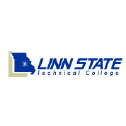What do they do?
Stand watch to look for obstructions in path of vessel, measure water depth, turn wheel on bridge, or use emergency equipment as directed by captain, mate, or pilot. Break out, rig, overhaul, and store cargo-handling gear, stationary rigging, and running gear. Perform a variety of maintenance tasks to preserve the painted surface of the ship and to maintain line and ship equipment. Must hold government-issued certification and tankerman certification when working aboard liquid-carrying vessels. Includes able seamen and ordinary seamen.
Also known as:
Able Bodied Seaman (AB Seaman), Able Bodied Watchman (AB Watchman), Able Seaman, Boat Crew Deck Hand, Boatman, Bosun, Deck Hand, Deckhand, Deckhand Engineer, Merchant Marine, Merchant Mariner, Oiler, Tankerman
-
0%
Change
Ranks #39 in job growth rate20Job Openings
Ranks #31 in net job growth
Looking for colleges that offer a specific major? Use the College Match Tool to find your best-matched schools and discover your estimated Net Price!
- High school diploma equivalent (46%)
- Some college, no degree (22%)
- Bachelor's degree (14%)
- Less than high school diploma (9%)
- Associate's degree (6%)
- Master's degree (2%)
- Doctorate or Professional Degree (<1%)
People in this career often have talent in:
- Far Vision - The ability to see details at a distance.
- Control Precision - The ability to quickly and repeatedly adjust the controls of a machine or a vehicle to exact positions.
- Oral Comprehension - The ability to listen to and understand information and ideas presented through spoken words and sentences.
- Problem Sensitivity - The ability to tell when something is wrong or is likely to go wrong. It does not involve solving the problem, only recognizing that there is a problem.
- Perceptual Speed - The ability to quickly and accurately compare similarities and differences among sets of letters, numbers, objects, pictures, or patterns. The things to be compared may be presented at the same time or one after the other. This ability also includes comparing a presented object with a remembered object.
- Depth Perception - The ability to judge which of several objects is closer or farther away from you, or to judge the distance between you and an object.
- Arm-Hand Steadiness - The ability to keep your hand and arm steady while moving your arm or while holding your arm and hand in one position.
- Multilimb Coordination - The ability to coordinate two or more limbs (for example, two arms, two legs, or one leg and one arm) while sitting, standing, or lying down. It does not involve performing the activities while the whole body is in motion.
- Auditory Attention - The ability to focus on a single source of sound in the presence of other distracting sounds.
- Manual Dexterity - The ability to quickly move your hand, your hand together with your arm, or your two hands to grasp, manipulate, or assemble objects.
- Visual Color Discrimination - The ability to match or detect differences between colors, including shades of color and brightness.
People in this career often do these activities:
- Inspect material-moving equipment to detect problems.
- Secure watercraft to docks, wharves or other vessels.
- Connect hoses to equipment or machinery.
- Control pumps or pumping equipment.
- Monitor equipment gauges or displays to ensure proper operation.
- Record operational or production data.
- Monitor surroundings to detect potential hazards.
- Maintain professional knowledge or certifications.
- Inspect equipment to ensure proper functioning.
- Maintain watercraft engines or machinery.
- Set up material handling gear or equipment, such as rigging, packaging, or temporary structures.
- Verify information or specifications.
- Operate ships or other watercraft.
- Assist others during emergencies.
- Signal others to coordinate vehicle movement.
- Clean vessels or marine equipment.
- Load shipments, belongings, or materials.
- Maintain material moving equipment in good working condition.
- Record operational details of travel.
- Operate cranes, hoists, or other moving or lifting equipment.
- Paint surfaces or equipment.
- Direct maintenance or repair activities.
- Measure the level or depth of water or other liquids.
This page includes data from:

 Occupation statistics: USDOL U.S. Bureau of Labor Statistics Occupational Employment Statistics
Occupation statistics: USDOL U.S. Bureau of Labor Statistics Occupational Employment Statistics
 Videos: CareerOneStop, USDOL/ETA and the Minnesota Department of Employment & Economic Development
Videos: CareerOneStop, USDOL/ETA and the Minnesota Department of Employment & Economic Development









